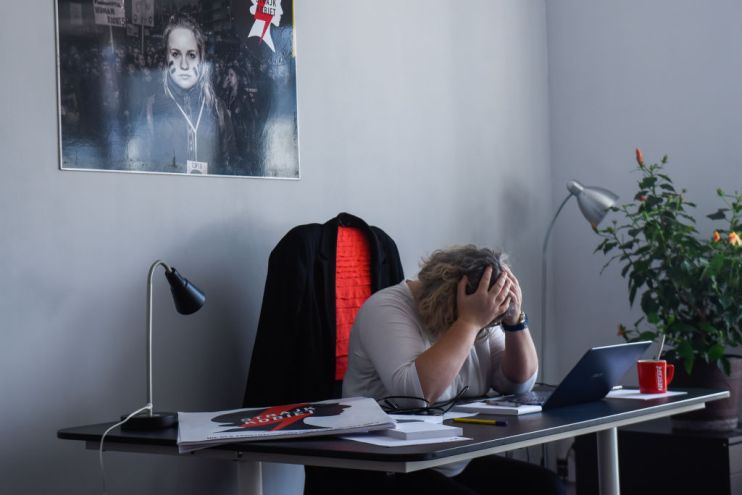Exclusive: Over half of Brits in favour of a ‘right to disconnect’ as work bleeds into daily lives

Most Brits are in favour of a ‘right to disconnect’ law, according to research shared exclusively with City A.M. today, which would give employees the right to ignore work-related emails outside of their contracted hours.
Despite 67 per cent of the UK having work-related communications outside of their working day – more than half think it is unacceptable to do so, new data by Ipsos has revealed.
“Before the pandemic there was already a rise in people working from home… with work seeming to be bleeding into other parts of people lives. But during the pandemic, the feedback we were receiving was demonstrating that people were feeling more overwhelmed, more burnt out and always on,” Ipsos UK chief executive Kelly Beaver told City A.M.
A number of governments have already looked into a potential law which would allow staff to avoid such communications, such as Slovakia and the Philippines. However, what other governments are starting to consider is whether the ‘right to disconnect’ is really the best way to go, Beaver explained.
“People don’t want more structure they want more flexibility… the right to disconnect doesn’t necessarily consider that,” she said, adding that with workforces increasingly feeling spent, “there are important considerations for governments right now”.
London, for example, is flooded with the types of careers that would be most exposed, if the UK government was to haul in such a law.
“London’s an interesting economy,” said Beaver, as the capital has a weighty professional services sector – which would be most impacted if a law was to be introduced.
Paris-listed Ipsos, the world’s third largest market researcher, found that more than 80 per cent of workers earning north of £55,000 per year are more likely to be checking, replying and sending work emails outside of their hours, in comparison with 65 per cent of those earning below that figure.
“In London with the professional services sector having a high proportion of households earning more than £55,000, it would likely have an impact of workplace productivity but would also have a positive impact on mental health in people,” Beaver continued.
While such a law would help mental health and work-life balances in the UK, and in London, it could risk heightening the “invisible bias” which hits career progression for mostly women, but also men.
“That would be a real live issue,” concluded Beaver. “Would more women and men ultimately become more invisible outside of working hours?”